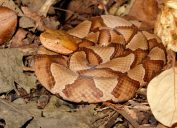9 Ways to Snake-Proof Your Yard, According to Experts
These are the safe and simple tactics to keep your property reptile-free.
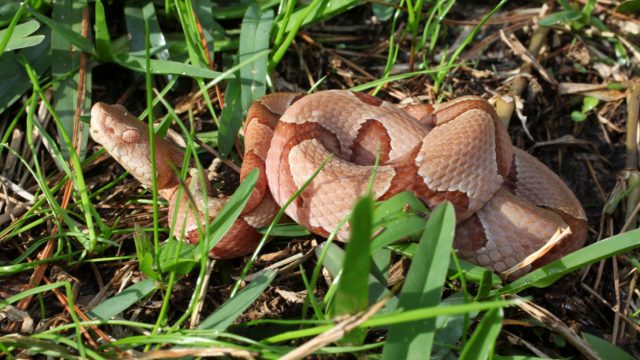
Your yard is your own personal outdoor sanctuary that you share with Mother Nature. And even though it's inevitable that wildlife will make their way into it, snakes are a unique example of an animal that can be hugely beneficial despite their unfortunate reputation. But if you live someplace where venomous reptiles are a potential risk for your children or pets, it's understandable that you might want to cut down on your chances of coming across one on your property. Read on to discover some easy ways to snake-proof your yard, according to experts.
READ THIS NEXT: The First Place You Should Check for a Snake in Your Home, Experts Say.
1
Stay on top of your yard work.

Regular lawn maintenance can be one of the more tedious and demanding parts of owning a home. But if you're looking to keep snakes away from your property, regularly busting out the lawnmower can keep your grass looking great while also making it less hospitable for reptiles.
"Keep vegetation around the house cut short," suggests Ian Williams, BCE, technical services manager at pest control company Orkin. "This makes the yard less attractive to small snakes and rodents because it increases their exposure to predators, and it also makes snakes easier to spot. Trim all vegetation back at least 18 inches from the foundation."
2
Avoid attracting prey with lawn decorations.
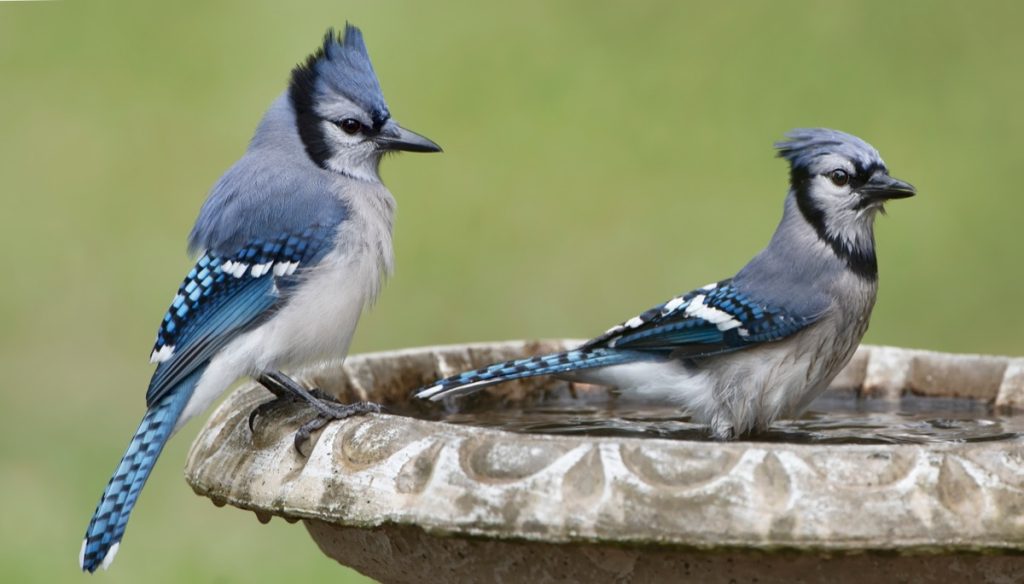
One of the joys of maintaining a lawn can be inviting colorful birds to eat and splash near your window or porch. Unfortunately, this can also be like ringing a dinner bell for snakes who are looking for an easy meal.
"Don't use bird feeders, bird baths, or other sources of food and water," Zachary Smith, president of Smith's Pest Management, tells Best Life. "Ultimately, they can attract their prey—including rats, mice, and insects—which also attracts snakes. And in some cases, they can also be a water source for snakes themselves."
READ THIS NEXT: The No. 1 Sign There's a Snake Under Your Porch.
3
Remove all standing water.

Decorative ponds and small bodies of water can bring your garden to the next level. The stillness can create the perfect relaxing ambiance and provide a nice contrast to your well-manicured plants and flowers. But experts say it can also make snakes feel right at home.
"Things like rain barrels, decorative ponds, or other standing sources of water give snakes a reason to come onto your property," Tim Sherrer, owner of Expest Exterminating in Georgia, tells Best Life. "Like all pests, snakes are looking for food and water wherever they go."
However, water may not only be in the places you'd expect: Make sure to check children's play equipment and toys like tire swings, as well as leaky hose faucets near your home's foundation.
4
Get rid of hiding places.
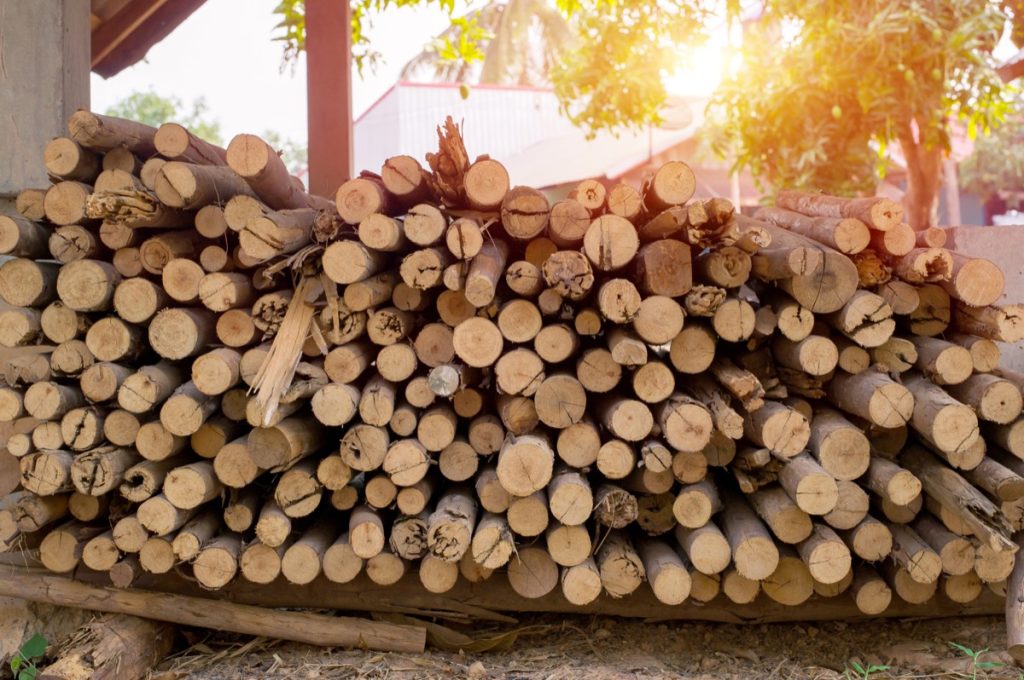
Your yard will inevitably collect some items in it over time, whether you intend to or not. But if you're not careful, you can wind up making your property an easy place for reptiles to establish themselves.
"Items such as a coiled water hose on the ground, leaf piles, stacked firewood, and other items on the ground in your yard can be a haven for snakes to hide," says Sherrer. "Remove these items or at least get them off the ground to prevent snakes from using them for shelter."
And it may not just be your tools or fuel that provides them with cover. Sherrer says it's best to stay on top of raking leaves and moving leaf piles during the fall, as well as dispersing grass clipping piles in the warmer months to avoid both snakes or their prey from getting comfortable in them.
5
Don't put dog or cat food outside.

If your dog or cat spends time going between indoors and outdoors, it can sometimes make sense to keep their food bowls somewhere in the garage or on your back porch. But experts warn that you could be setting up a buffet for animals besides your furry companions.
"Feed pets inside. Feeding them outside can attract insects and rodents, which will attract snakes," says Williams. "If you absolutely must feed them outdoors, just be sure to clean up uneaten food promptly."
Proper storage is also essential. Williams adds that bulk bags of food should be stored indoors or in hard plastic tubs to keep rodents out.
For more snake advice delivered straight to your inbox, sign up for our daily newsletter.
6
Fill in holes and burrows.
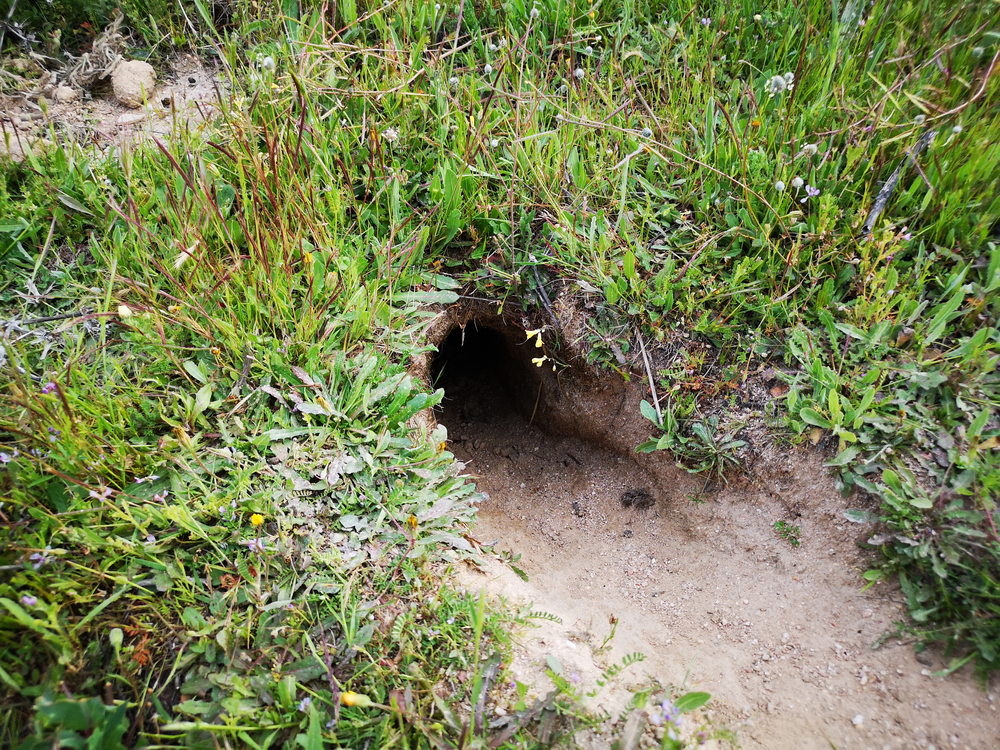
Burrowing rodents can wreak havoc on your lawn by killing grass, plants, and bushes. And while snakes might help rid you of these pests, they often also take the liberty of moving into their prey's former home once they've finished the job.
"Filling old gopher holes will prevent snakes from using them on your property. They like these because it's a place to keep cool and a way to catch prey," says Sherrer.
Fortunately, since snakes can't dig themselves, the solution is relatively simple. "Filling these with gravel or dirt will do the trick," he says.
7
Install snake-proof fencing.
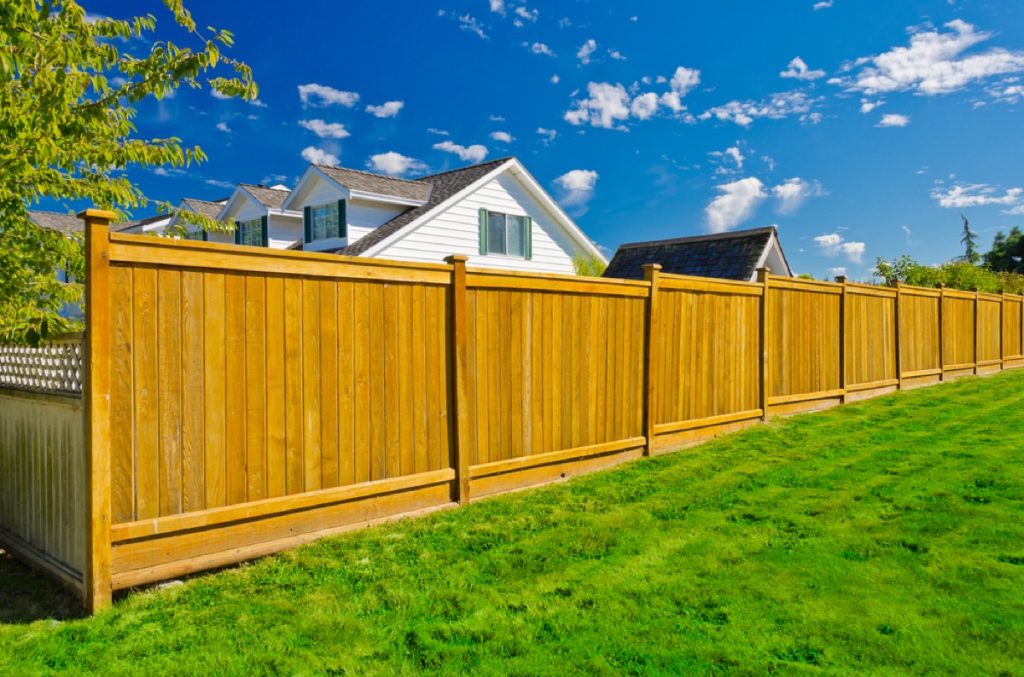
If you live in an area where snakes have become all-too-common on your property, it might take more than preventative action to keep them from coming around. In this case, you might want to consider building a perimeter that will keep them out—as well as their prey.
"For a heavier-lift project, consider installing snake-proof fencing, which generally sits above or below ground," says Smith. "This helps keep snakes as well as smaller animals from entering your property."
8
Encircle your lawn with gravel.
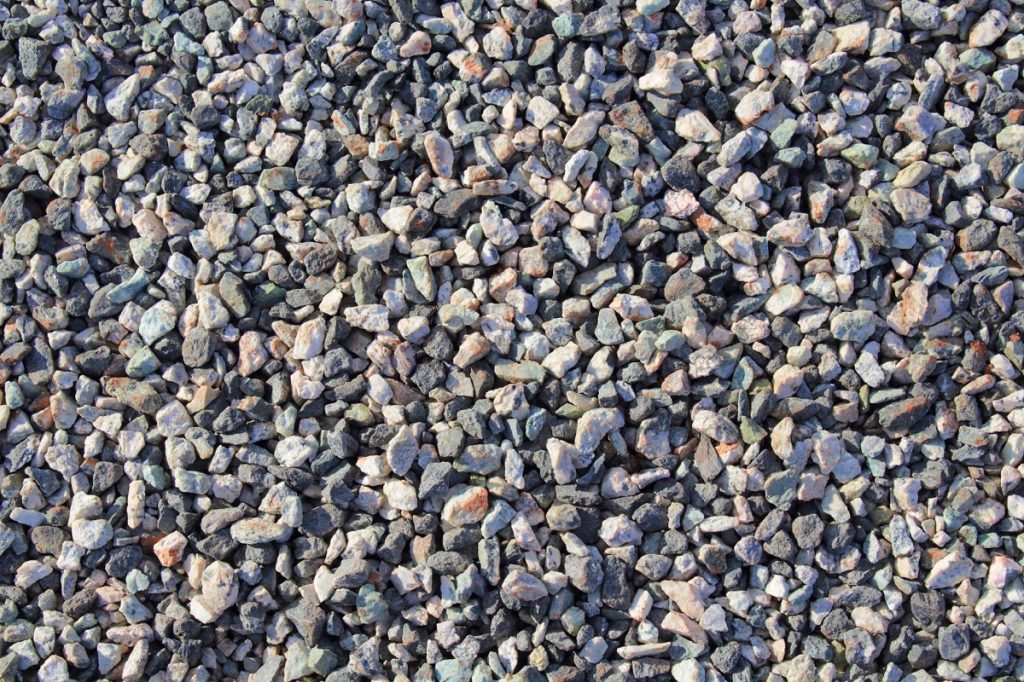
Can't bear the thought of closing your property off to the rest of the world? According to experts, there is an easier way to dissuade reptiles from slithering in that can have a minimal effect on the aesthetic of your yard.
"Gravel is harder for a snake to travel across than grass. You could use gravel as a perimeter around your yard to discourage a snake from entering," Sherrer suggests.
READ THIS NEXT: It's Snake Season: "Be Aware" in These Areas, Experts Caution.
9
Go easy on the sprinkler.
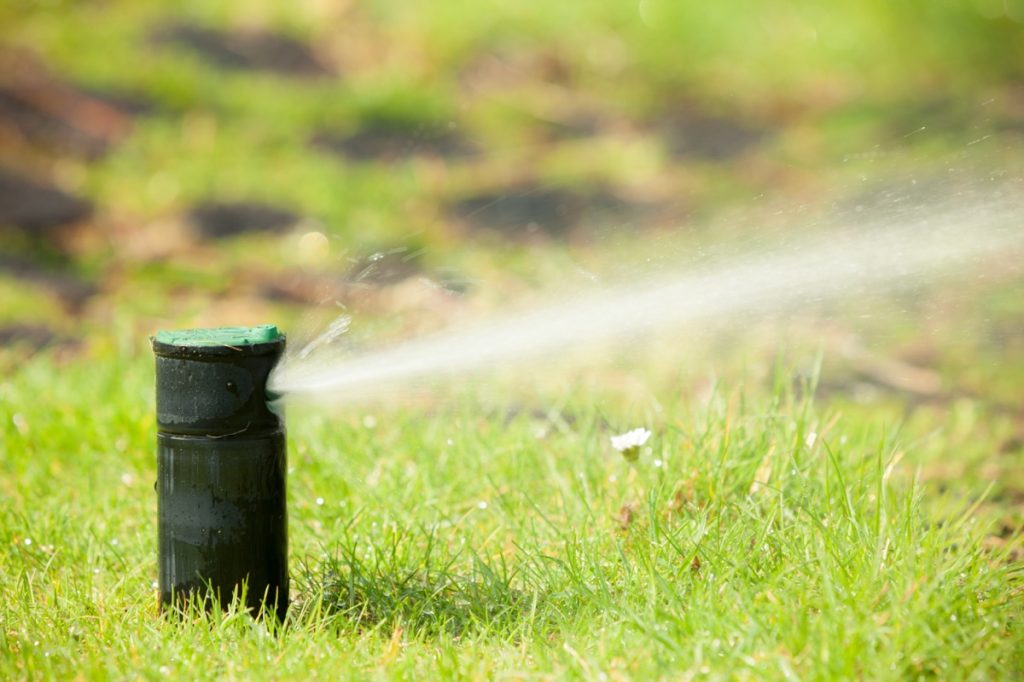
Anyone who has taken care of a patch of grass knows it can take a decent amount of water to keep things vibrant and green during dry spells. However, they also know that conditions can quickly become swamp-like if you're not too careful. Unfortunately, besides making your yard soggy to walk on, it can provide the perfect habitat for the kinds of critters snakes like to eat.
"Don't overwater your lawn," advises Williams. "An oversaturated landscape may attract species such as worms, slugs, and insects, which may lure snakes seeking a meal."
